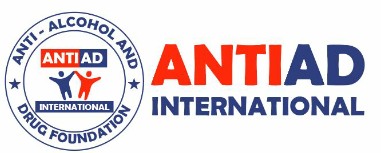Drug Addiction
Addiction is most commonly associated with substance use disorders (SUDs), which involve the compulsive and problematic use of substances like drugs and alcohol. Addictions can be from:-
Caffeine, Alcohol, Cannabis, Phencyclidine and other hallucinogens, Inhalants, Opioids, Sedatives, hypnotics, or anxiolytics, Stimulants and Tobacco.
Addiction can be defined as both a brain disorder and a mental illness. It’s characterized by the compulsive desire to seek out and use a substance despite the potentially harmful consequences of doing so, including long-lasting changes in the brain.



Definition of Addiction
Addiction can be defined as both a brain disorder and a mental illness. It’s characterized by the compulsive desire to seek out and use a substance despite the potentially harmful consequences of doing so, including long-lasting changes in the brain.
Taking more of a substance than originally was intended or taking it for a longer period of time than intended.
Unsuccessful attempts to cut back or stop using a substance.
Spending a lot of time finding a substance, using it, and recovering from use.
Cravings or strong urges to use a substance.
Inability to fulfill one’s roles in the family, at work, or at school due to substance use.
Increased interpersonal issues due to substance use.
Giving up things that used to be important or enjoyable and using a substance instead.
Using a substance in a high-risk situation, such as while driving.
Using a substance despite knowing that it will worsen physical or emotional disorders.
Tolerance, which means your body becomes used to a substance and needs more of it to feel its effects.
Physical withdrawal and other symptoms in response to the substance being taken away or significantly reducing use—this may occur with certain substances.
Substance use disorders are sub-classified as mild, moderate, or severe based on how many of these criteria a person may be exhibiting
Warning Signs of Addiction
When a person has a substance use disorder, their behavior may appear different than it was before they began using substances. The repeated use of substances can lead to changes in a person’s brain functioning, which could potentially impact their judgment, cognitive abilities, decision making, and other behaviors.
In general, people who have substance use disorders show signs of drug misuse such as:-
Impaired control, which means that while they want to cut back, or try to cut back, their cravings for a substance are so strong that they find abstinence impossible.
Social problems, including failing at school, getting poor reviews at work, or being fired from work, and interpersonal issues, such as relationship problems.
Giving up on other things that interfere with using a substance.
Risky use, which means using even when it’s dangerous to do so, such as driving under the influence or drinking even though it can make liver problems worse.
Other potentially harmful signs of addiction may include behaviors like:-
Lying or being secretive about using a substance.
Stealing money or other items to pay for your substance use.
Changes in friends and/or adjustments to how you spend your free time.
Engaging in risky sexual encounters.
Neglecting parental duties.
Though the potential outward physical effects of drug abuse may vary from one substance to the next, some general physical drug abuse symptoms may include:-
Gaining or losing a lot of weight.
Sleeping far more or less than normal.
Bad breath or bad teeth.
Shaking or tremors from using.
Bloodshot eyes.
Developing withdrawal symptoms, such as chills or vomiting, during a period of abstinence from the substance.
Emotional signs of addiction may include:-
Frequently seeming worried without a specific reason.
Tiredness and feeling unmotivated.
Rapid changes in mood, energy, or attitude.
Unusual amount of energy, nervousness, or irritability.



Causes of Addiction
There is no single cause of an addiction. The causes of substance use disorders involve complex interactions among brain circuits, genetics, the environment, and a person’s life experiences.1 Researchers have identified a number of potential risk factors that may contribute to a person developing an addiction to drugs or alcohol. These factors may stem from various areas, including a person’s biology, environment, and development.
The risk factors for addiction include:-
Gender.
Socioeconomic background.
Presence of a co-occurring mental health disorder.
Friend groups.
Family life.
Traumatic experiences.
There isn’t one specific cause of addiction or risk factor that can predict whether or not someone gets addicted to a substance. Addiction is often associated with a combination of these factors. The more risk factors a person has, the greater the chances are that taking drugs could lead to addiction.
Some common motivations for use and/or misuse of substances can include:-
Trying to feel better—using substances to improve mood or soothe pain.
To perform better—using some substances may make people feel like they can focus better at work or in school.
Curiosity—some people may want to experiment or feel pressured by others.
Call Us
AntiAD House, Next to Braeburn School, Garden Estate Road
+254 20 800 1999,+254 772 800 999
info@antiadinternational.org
Call Us
AntiAD House, Next to Braeburn School, Garden Estate Road
+254 20 800 1999,+254 772 800 999
info@antiadinternational.org
